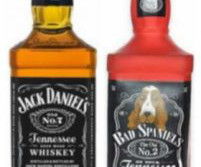IPR and the World of Fashion
IIPRD
JUNE 14, 2021
Piracy and Fashion Design. Piracy may be defined as the unauthorized and illegal reproduction or distribution of materials protected by copyright, patent, or trademark law which is capable of eating up the whole industry slowly and steadily. Protection under the Designs Act, 2000. Iqbal Singh Chawla&Ors. ,













Let's personalize your content